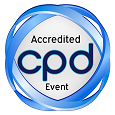
Allison Wiseman
University of Surrey, UK
Title: Peer assessed medicines management OSCE for student nurses- a strategy to enhance safe medicines management practice
Biography
Biography: Allison Wiseman
Abstract
Safe medicines management is a priority nationally in the United Kingdom [UK] and internationally. Professional and regulatory bodies such as the Nursing & Midwifery Council [UK], mandate safe medicines management for pre-registration students and registrants. Evidence highlights medicines management adverse continue to rise despite quality assurance initiatives such as medicines management competency assessments of registrants and students. Similarly student nurses are involved in medicines management adverse events under the supervision of their mentors. Educators have dual responsibility with placement providers to deliver safe and efficacious learning experiences. The PAMMO was designed to develop student nurses’ medicines management skills and knowledge, including error identification, problem solving, decision making, assessment and feedback in a safe and supported learning environment. Phase 1: Evaluated the inter-rater reliability of student nurses PAMMO criterion referenced and global scores of safety Phase 2: Identified what informs students’ global scores of safety Design: Mixed methods exploratory sequential study evaluating Peer Assessed Medicines Management Objective Structured Clinical Examinations [PAMMO] for student nurses. Results Phase 1: Criterion assessing â€five rights†of medicines management demonstrated exact agreement (Cohens kappa 1.0), global scores demonstrated poor reliability (Cohens kappa 0.02) Phase 2: Students judgement making fell within two theoretical frameworks. Firstly Social constructivism, whereby assessments were based upon their learning (theoretical and practical) and views of safe care. Secondly the cognitive continuum- nine modes (Standing, 2010) based on five modes of judgement making. Conclusion: PAMMO may offer educators a cost effective and efficacious way to develop students’ safe medicines practice

